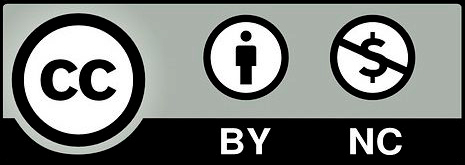
Related Glossary:
-
Bank card:
It is a payment instrument issued by a financial institution. With the card, you can pay instantly, as if you were carrying physical cash on you, withdraw money from ATMs (Automated Teller Machines) and even finance the purchase of goods and services in the short term. -
Bank transfer:
These are transactions that occur when a person instructs his or her bank to withdraw money from his or her account and deposit it into another person's account at the same or a different bank. -
Bizum:
Bizum is an instant money transfer service that allows you to send money from one mobile phone to another without needing to know the account number, just the phone number linked to a bank account. "Bizum" is synonymous with making an immediate payment by mobile phone in a colloquial way. -
Budget:
A family budget is a document that summarises in figures, in an organised way, the income and expenditure of a family over a certain period of time. -
Collection:
A collection is when we actually receive the sum of an income. For example, we receive a collect when our employer pays our salary through a bank account or in cash. Or when a customer pays an invoice issued by a retailer. -
Credit:
Credit implies that there is a creditor (usually a bank) and a debtor (who must pay back the money). A credit card makes available an amount greater than the balance of the current account with which it is associated, as it is in effect a credit at the holder's disposal, which is usually returned at the end of the month. -
Debit:
A debit card implies a payment commitment obligation that is usually settled on the spot and with existing funds. When a debit card is used, it is obligatorily linked to a current account and allows only the balance on the account to be drawn on. -
Financial equilibrium:
Full financial equilibrium occurs when the balance between inflows and outflows of money coincide. -
Financial sustainability:
A budget must be sustainable, which means that the regular income for the year is sufficient to cover regular expenditure and the repayment of loan instalments previously contracted. -
Payment:
While an expenditure is when an obligation to deliver a sum of money has been incurred, payment is when the money is delivered physically or through a debit to a bank account. - See all terms
Keywords
Budget, expenses, income, organise, family
Objectives:
- To provide a global vision, with valuable information about our real consumption habits.
- To be able to analyse and make decisions on the form and destination of each of the incomes available to a family and thus better plan their financial future.
Description:
- Identifying and differentiating between expenditures and payments.
- Identifying and differentiating between collections and incomes.
- Managing our money in the best possible way.
Bibliography
- https://www.edufinet.com/inicio/presupuesto-familiar
- https://www.edufinet.com/inicio/presupuesto-familiar/presupuesto-familiar
- https://www.finanzasparatodos.es/herramientas/mipresupuesto
- https://www.elclubdeinversion.com/presupuesto-familiar/
- https://www.santander.com/es/stories/pasos-para-elaborar-un-presupuesto-familiar-a-medida
- https://www.investopedia.com/guide-to-financial-literacy-4800530
- Financial Guide "Learn how to make better financial decisions" (Edufinet).
- https://economictimes.indiatimes.com/definition
- https://banzai.org/
- https://handsonbanking.org/
- https://www.rockethq.com/learn
-
Related training material
- Special products (i.e.: reverse mortgage)
- Savings products: deposits
- Financing options, credits and loans
 Family / personal budget management
Family / personal budget management Click to read
Click to read 








